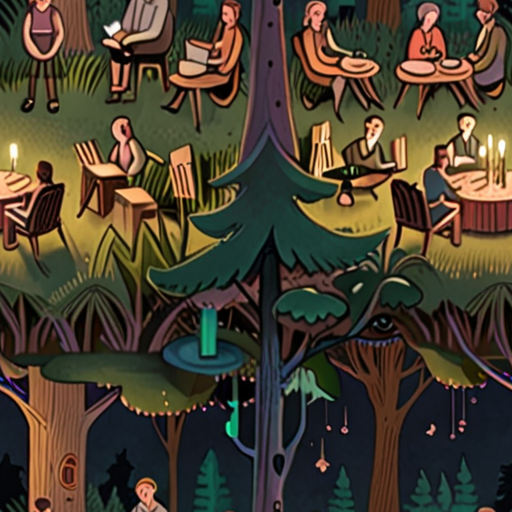For many aspiring writers, finding a supportive community of like-minded individuals can be a game-changer in their creative journey. A writing community provides a safe space to share ideas, receive constructive feedback, and stay motivated, ultimately helping writers grow both personally and professionally.

Discovering a Community for Writers
As a writer, finding a supportive community can be a game-changer for your creative journey.
- The Power of Online Communities
- Joining Writing Groups and Forums
- Attending Writing Conferences and Workshops
- Participating in Social Media Groups
- Connecting with Fellow Writers through Blogs and Podcasts
The Power of Online Communities
Online communities offer a wealth of opportunities for writers to connect with others who share similar interests and goals.
- James Whitfield Thomson – A literary platform featuring my work, reflections, and writing tips.
- Writing.com – A community-driven website offering writing prompts, feedback, and support.
- Narrative.ly – A platform showcasing personal stories and essays, with a strong focus on community engagement.
Joining Writing Groups and Forums
Writing groups and forums provide a space for writers to share their work, receive feedback, and learn from others.
- Critique Circle – A online writing group offering constructive feedback and support.
- Writer’s Digest – A community-driven forum discussing various aspects of writing and publishing.
Attending Writing Conferences and Workshops
Conferences and workshops offer valuable opportunities for writers to network, learn from industry professionals, and gain hands-on experience.
- Writers Conference – An annual event bringing together writers, agents, and editors.
- Workshop – A platform offering writing workshops and conferences.
Participating in Social Media Groups
Social media groups provide a convenient way for writers to connect with others, share their work, and engage in discussions.
- Facebook Writing Group – A community-driven group discussing various aspects of writing.
- @writingcommunity – A Twitter handle dedicated to sharing writing-related content and connecting with fellow writers.
Connecting with Fellow Writers through Blogs and Podcasts
Blogs and podcasts offer a unique opportunity for writers to connect with others, share their expertise, and learn from industry professionals.
- My Blog – A platform featuring my writing tips, reflections, and experiences.
- The Write Life – A blog offering writing tips, resources, and inspiration.
- The Alliance of Indie Authors Podcast – A podcast discussing various aspects of indie publishing.
What is a Writing Community?
A writing community is a group of individuals who share a common interest in writing and come together to support, motivate, and learn from one another. As a writer myself, I can attest to the importance of having a community of fellow writers who understand the challenges and triumphs of the creative process.
As a member of various writing communities, I’ve found that these groups offer a sense of belonging, accountability, and inspiration that can be invaluable to one’s writing journey.
- Online Communities: Online forums, social media groups, and writing platforms like Medium, WordPress, and Blogger provide opportunities to connect with writers worldwide, share work, receive feedback, and participate in discussions.
- In-Person Communities: Local writing groups, workshops, conferences, and writing retreats allow writers to interact face-to-face, network, and engage in hands-on learning experiences.
- Collaborative Projects: Joining forces with fellow writers on projects, anthologies, or publications enables writers to pool their skills, expertise, and resources, fostering growth and innovation.
When building a writing community, consider the following factors:
- Shared Goals: Identify common objectives, such as improving writing skills, publishing work, or exploring specific genres.
- Diverse Perspectives: Encourage members with varying backgrounds, experiences, and styles to contribute to the community, enriching the discussion and learning environment.
- Supportive Environment: Foster a culture of constructive feedback, empathy, and encouragement, allowing members to feel comfortable sharing their work and receiving input.
- Regular Engagement: Schedule regular meetups, webinars, or online sessions to maintain momentum, facilitate connections, and keep the community engaged.
By embracing the principles of a writing community, writers can tap into a wealth of knowledge, motivation, and creativity, ultimately elevating their craft and achieving their goals.
Building a Writing Community
To establish a thriving writing community, consider the following steps:
- Define Your Niche: Determine the focus of your community, whether it’s genre-specific, skill-based, or centered around a particular theme.
- Choose a Platform: Select a suitable platform for your community, such as a website, forum, or social media group, based on your needs and preferences.
- Craft a Mission Statement: Develop a clear statement outlining the purpose, values, and goals of your community, serving as a guiding force for its members.
- Establish Guidelines: Create rules and expectations for community behavior, ensuring a respectful and productive environment for all participants.
- Foster Connections: Organize events, activities, and discussions that encourage members to interact, share ideas, and collaborate.
Conclusion is Not Required

The Largest Online Writing Community
As a writer myself, I’ve had the privilege of exploring various online communities where creatives connect, share ideas, and learn from one another. Among these, there’s one platform that stands out for its massive following and dedication to fostering a supportive environment for writers – Wattpad.
With over ninety million members worldwide, Wattpad has become the go-to destination for writers looking to share their stories, receive feedback, and connect with fellow enthusiasts. Its unique feature of allowing users to publish chapters of their unfinished work has enabled many authors to gradually build a loyal fan base.
Other Notable Online Writing Communities
While Wattpad remains the largest online writing community, there are several others worth mentioning:
- Medium : A popular platform for writers to share their articles, essays, and stories. Medium’s Partner Program allows writers to earn money based on engagement and reads.
- Reddit’s r/writing : A vibrant community of writers, editors, and publishing professionals sharing knowledge, resources, and support.
- NaNoWriMo : National Novel Writing Month’s online community helps writers stay motivated and connected during the annual November challenge.
- Writing.com : A dedicated platform for writers to share their work, participate in contests, and engage with fellow writers.
Why These Communities Matter
These online writing communities offer invaluable opportunities for growth, learning, and connection. They provide a space for writers to:
- Share their work and receive constructive feedback
- Learn from experienced writers and industry professionals
- Connect with like-minded individuals who understand the challenges and joys of writing
- Stay motivated and inspired through shared goals and challenges
By embracing these online communities, writers can elevate their craft, build meaningful relationships, and contribute to a thriving literary ecosystem. As someone who’s benefited from these communities myself, I highly recommend exploring them and finding your own tribe of fellow writers.
Building a Community as a Writer
As a writer, building a community can be a powerful way to connect with fellow authors, share knowledge, and grow your audience.
- Identify Your Niche
- Choose a Platform
- Develop Engaging Content
- Foster Interaction
- Offer Exclusive Benefits
- Monitor and Adapt
Determine the type of community you want to build around your writing. Are you focused on fiction, non-fiction, or a specific genre? Identifying your niche will help you attract like-minded individuals who share your interests.
Select a platform to host your community, such as a website, social media group, or online forum. Consider factors like ease of use, customization options, and integration with other tools.
Create high-quality content that resonates with your target audience. Share writing tips, behind-the-scenes stories, and exclusive promotions to keep members engaged.
Encourage discussion and feedback among community members. Host webinars, Q&A sessions, or writing challenges to stimulate interaction and build relationships.
Provide incentives for members to participate and contribute to the community. Offer early access to new releases, exclusive discounts, or personalized feedback to loyal members.
Regularly evaluate the effectiveness of your community-building efforts and adjust your strategy accordingly. Gather feedback from members and make changes to improve engagement and satisfaction.
Competitor Analysis
When building a community, it’s essential to stay aware of your competitors and their strategies. Research successful communities in your niche and identify areas for differentiation.
- James Whitfield Thomson
- Roseanna White Designs
My own community, jameswhitfieldthomson.com , focuses on providing valuable resources and support for writers. By sharing my expertise and experiences, I aim to create a loyal following and foster meaningful connections with fellow writers.
Roseanna White Designs offers a unique approach to community building, emphasizing the importance of authenticity and shared passion. Their community-driven approach has helped establish a strong connection between authors and readers.
Best Practices for Community Building
To succeed in building a thriving community, remember to:
- Nurture Relationships
- Stay Consistent
- Be Authentic
Invest time and effort into building genuine relationships with community members. Respond to comments, engage in discussions, and show appreciation for contributions.
Regularly update content, host events, and communicate with members to maintain momentum and interest.
Share your personal story, showcase your expertise, and be transparent about your goals and intentions. Authenticity breeds trust and loyalty among community members.
Engaging a Community of Writers
As a writer myself, I understand the importance of having a supportive community of fellow writers who can offer valuable feedback, encouragement, and motivation.
- Create a welcoming online space where writers can share their work, receive constructive criticism, and learn from one another.
- Host regular writing workshops, webinars, or conferences to bring writers together and provide opportunities for networking and skill-building.
- Develop a social media presence to connect with writers, share industry news and trends, and promote member work.
- Foster a sense of belonging among members by recognizing and celebrating their achievements, whether through awards, publications, or other forms of recognition.
- Encourage collaboration and cross-pollination of ideas by pairing writers with complementary skills or interests.
- Offer mentorship programs or one-on-one coaching to help emerging writers develop their craft and overcome challenges.
- Promote diversity, equity, and inclusion within the community by actively seeking out and amplifying underrepresented voices.
- Stay up-to-date with industry developments and best practices by attending conferences, reading industry publications, and participating in online forums.
- Continuously evaluate and improve the community’s offerings based on member feedback and needs.
Building Relationships and Trust
To foster a strong sense of community, it’s essential to build relationships and trust among members.
- Be approachable, responsive, and transparent in all interactions with members.
- Respect members’ boundaries, preferences, and confidentiality.
- Encourage open communication, active listening, and empathy within the community.
- Foster a culture of accountability, responsibility, and mutual support.
- Recognize and reward members’ contributions, milestones, and achievements.
Maintaining a Positive and Inclusive Environment
A positive and inclusive environment is crucial for attracting and retaining members.
- Establish clear guidelines, expectations, and consequences for behavior.
- Encourage respectful dialogue, constructive feedback, and conflict resolution.
- Foster a growth mindset, embracing learning, experimentation, and innovation.
- Celebrate diversity, inclusivity, and individuality, promoting a sense of belonging among members.
- Address and resolve conflicts promptly, fairly, and respectfully.
Measuring Success and Growth
To ensure the community remains vibrant and effective, it’s essential to measure success and growth regularly.
- Track engagement metrics, such as participation rates, feedback, and member satisfaction.
- Evaluate the effectiveness of programming, events, and initiatives.
- Conduct surveys, focus groups, or interviews to gather member feedback and insights.
- Analyze financial reports, membership numbers, and revenue streams.
- Adjust strategies and tactics based on data-driven insights and member feedback.

How Small Authors Can Make Money
As a writer myself, I’ve often been asked how small authors can make a living from their work. While there’s no one-size-fits-all answer, I’ll share my insights on the various ways authors can monetize their writing.
There are several ways authors can earn income from their books, including:
- Book Sales: Traditional publishing offers authors a chance to earn royalties on book sales. However, these rates vary widely depending on the publisher and the type of deal.
- Audience Engagement: Building a loyal audience through social media, email newsletters, and blog posts can lead to increased book sales, speaking engagements, and other opportunities.
- Online Courses: Creating online courses teaching writing skills, marketing, or other topics related to writing can be a lucrative source of income.
- Affiliate Marketing: Partnering with companies offering writing-related products or services can generate passive income through affiliate marketing.
- Patreon and Membership Sites: Offering exclusive content, early access, or behind-the-scenes material to fans who support you financially can provide a steady stream of income.
- Merchandise and Licensing: Selling merchandise, such as t-shirts, mugs, or tote bags, with your branding or characters can bring in extra revenue. Licensing your work for film, TV, or video games can also be a significant source of income.
- Grant Writing and Fundraising: Applying for grants, crowdfunding, or sponsorships can help fund projects, events, or charitable initiatives.
- Speaking Engagements: Sharing your expertise as a speaker at conferences, workshops, or festivals can be a great way to connect with audiences and earn income.
- Coaching and Consulting: Offering one-on-one coaching or consulting services to aspiring writers can provide a valuable service and generate income.
- Self-Publishing: Self-publishing allows authors to retain creative control and potentially higher royalties, making it an attractive option for many writers.
While these options may seem daunting, remember that building a successful writing career takes time, effort, and perseverance. By diversifying your income streams and staying focused on your goals, you can increase your chances of success as a small author.
In conclusion, making a living as a small author requires creativity, hard work, and adaptability. By exploring various income streams and staying committed to your craft, you can turn your passion into a sustainable career.

0 Comments